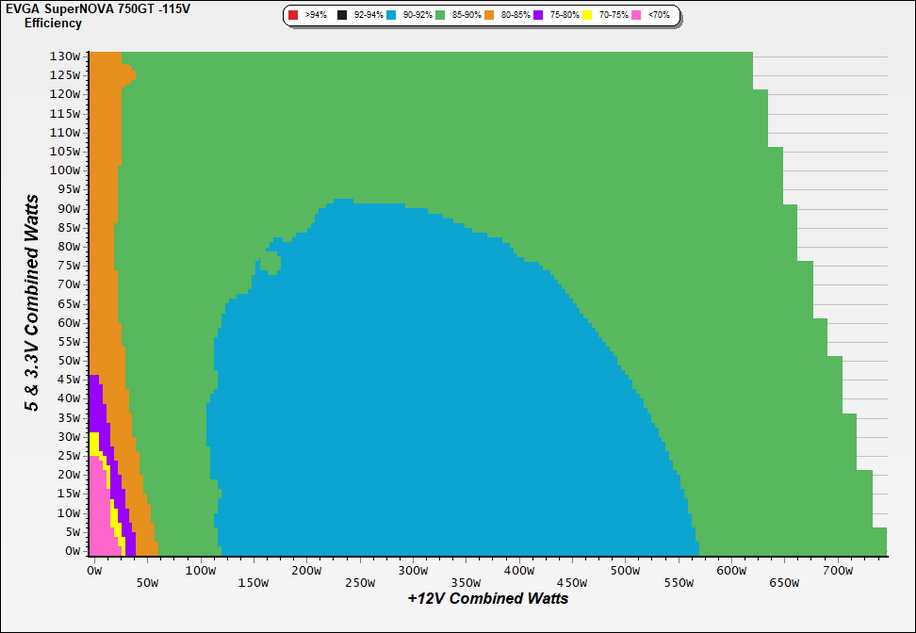Why you can trust Tom's Hardware
Protection Features
Check out our PSUs 101 article to learn more about PSU protection features.
| OCP (Cold @ 23°C) | 12V: 83.2A (133.12%), 12.006V 5V: 31.7A (158.5%), 4.934V 3.3V: 31A (155%), 3.268V 5VSB: 3.7A (123.33%), 4.998V |
| OCP (Hot @ 36°C) | 12V: 82.4A (131.84%), 12.021V 5V: 29.1A (145.5%), 4.945V 3.3V: 28.5A (142.5%), 3.284V 5VSB: 3.8A (126.67%), 4.996V |
| OPP (Cold @ 29°C) | 1012.21W (134.96%) |
| OPP (Hot @ 40°C) | 1003.86W (133.85%) |
| OTP | ✓ (187°C @ secondary side) |
| SCP | 12V to Earth: ✓ 5V to Earth: ✓ 3.3V to Earth: ✓ 5VSB to Earth: ✓ -12V to Earth: ✓ |
| PWR_OK | Proper operation |
| NLO | ✓ |
| SIP | Surge: MOV Inrush: NTC Thermistor & Bypass relay |
OCP is set properly at 12V, but way too high on the minor rails. Moreover, over power protection is set correctly, while over temperature protection has a high triggering point.
DC Power Sequencing
According to Intel’s most recent Power Supply Design Guide (revision 1.4), the +12V and 5V outputs must be equal to or greater than the 3.3V rail at all times. Unfortunately, Intel doesn't mention why it is so important to always keep the 3.3V rail's voltage lower than the levels of the other two outputs.
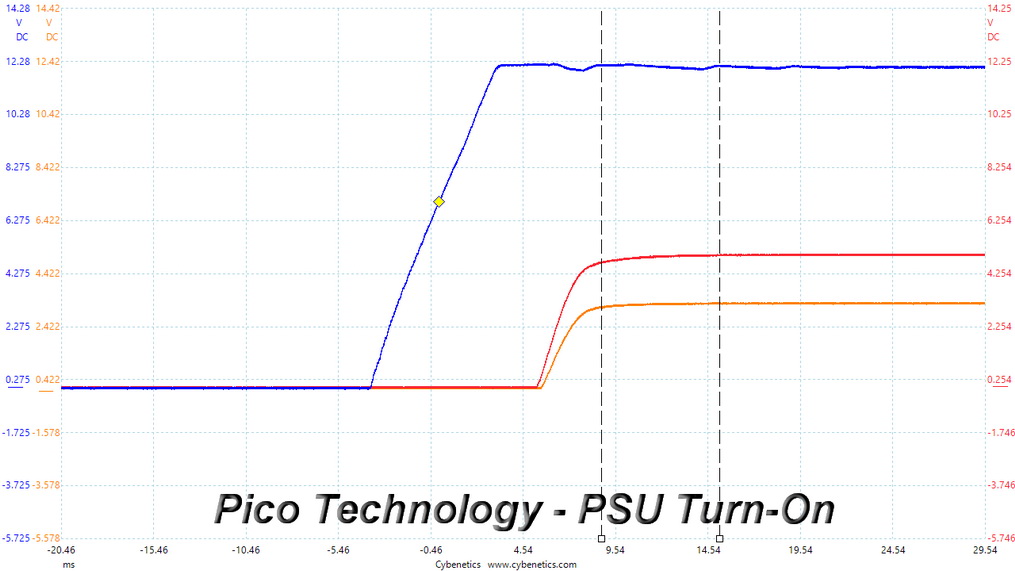
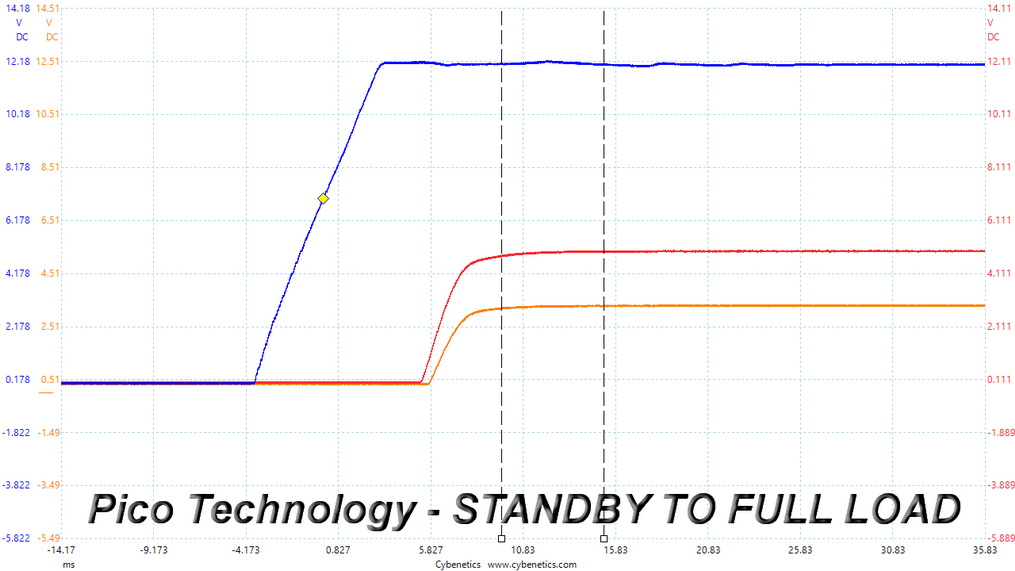
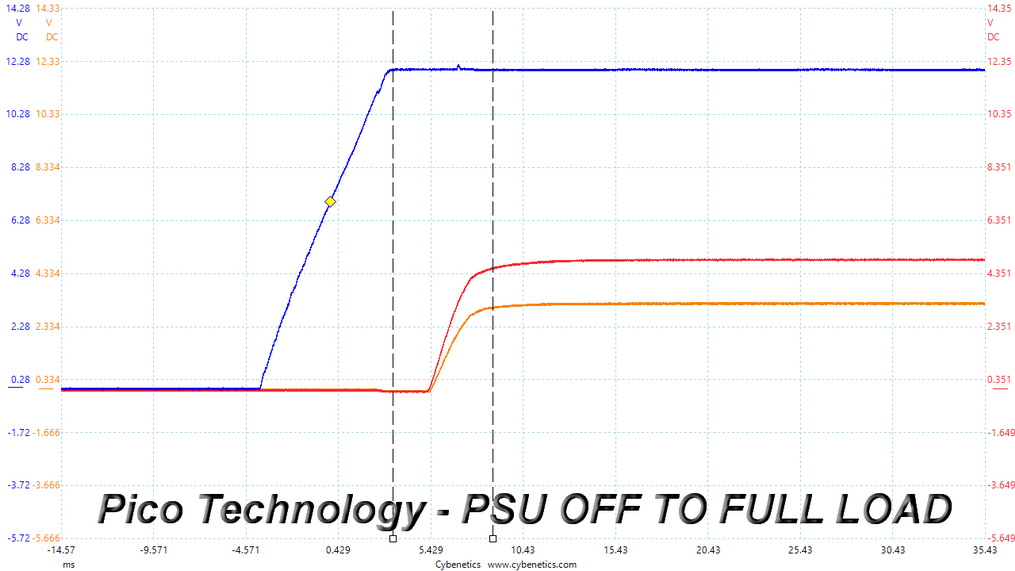
The 3.3V rail is always lower than the other two, so everything is fine here.
Cross Load Tests
To generate the following charts, we set our loaders to auto mode through custom-made software before trying more than 25,000 possible load combinations with the +12V, 5V, and 3.3V rails. The deviations in each of the charts below are calculated by taking the nominal values of the rails (12V, 5V, and 3.3V) as point zero. The ambient temperature during testing was between 30 to 32 degrees Celsius (86 to 89.6 degrees Fahrenheit).
Load Regulation Charts
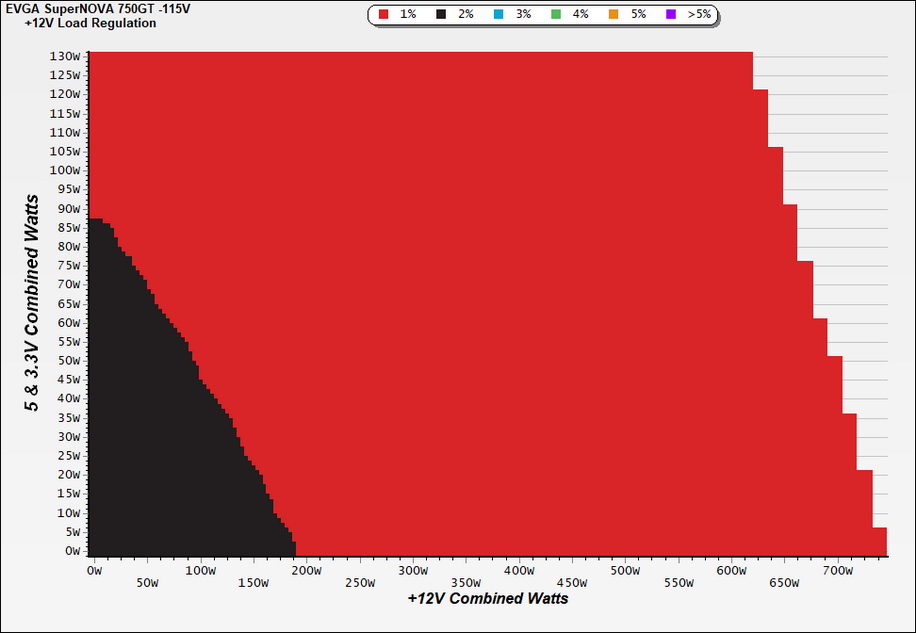
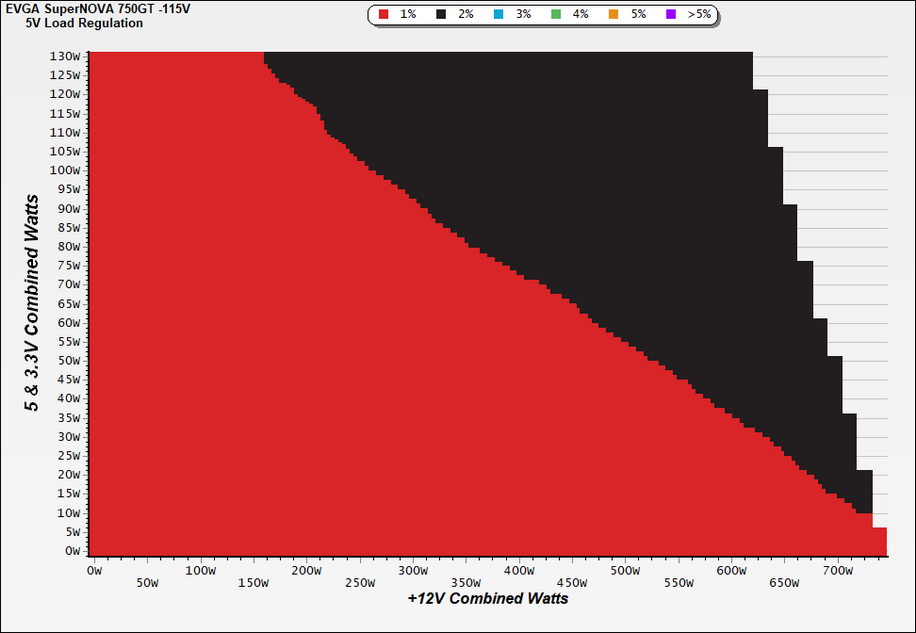
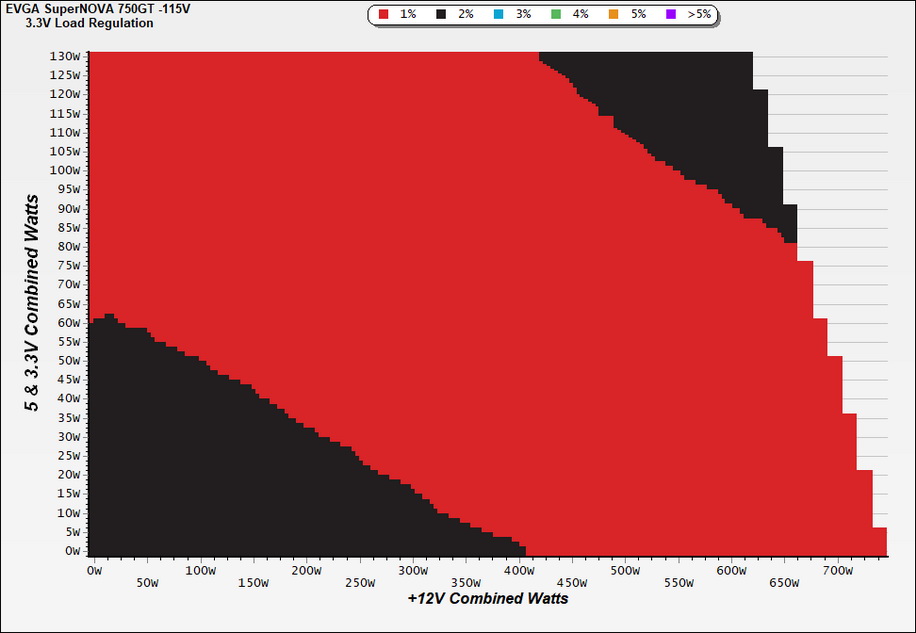
Efficiency Graph
Ripple Graphs
The lower the power supply's ripple, the more stable the system will be and less stress will also be applied to its components.
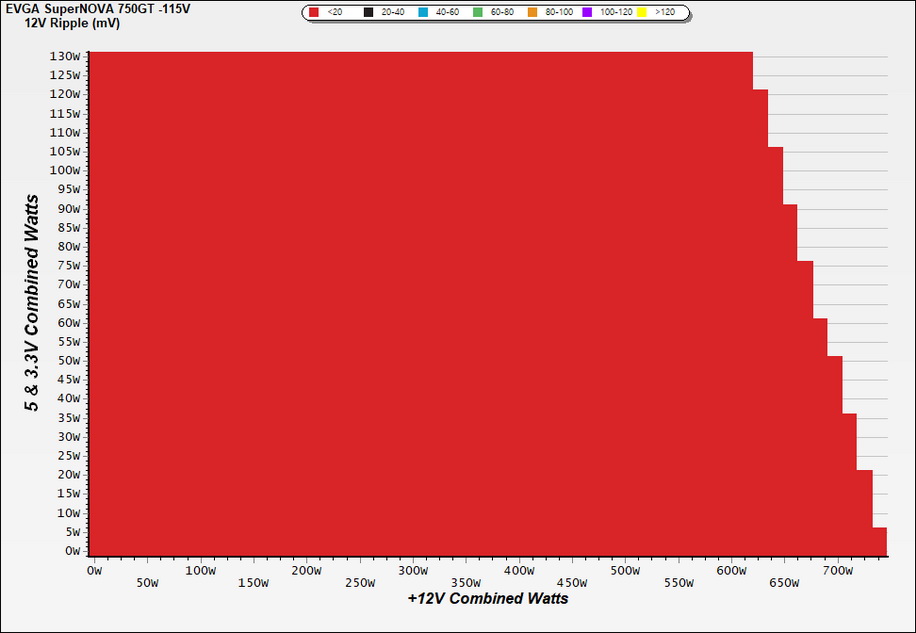
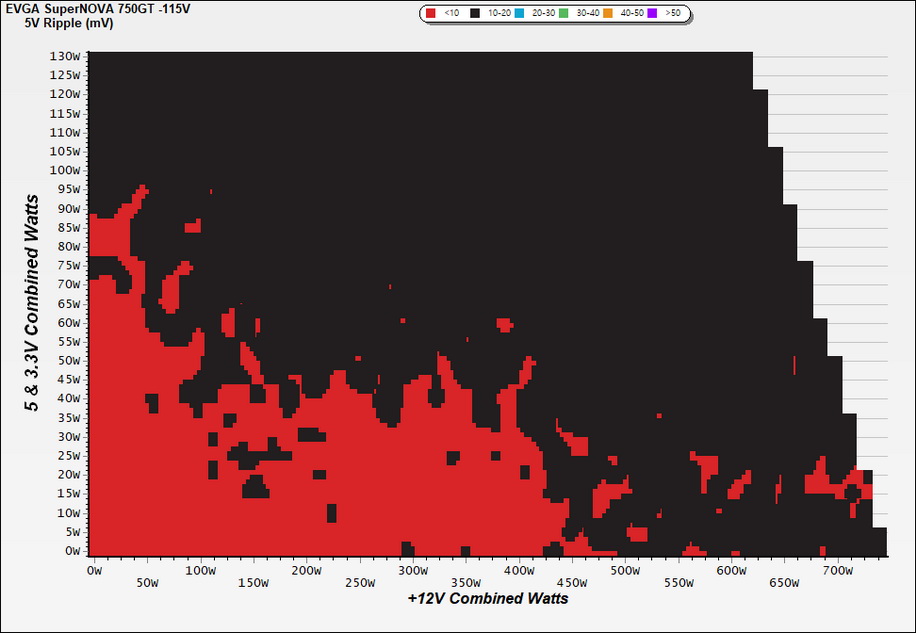
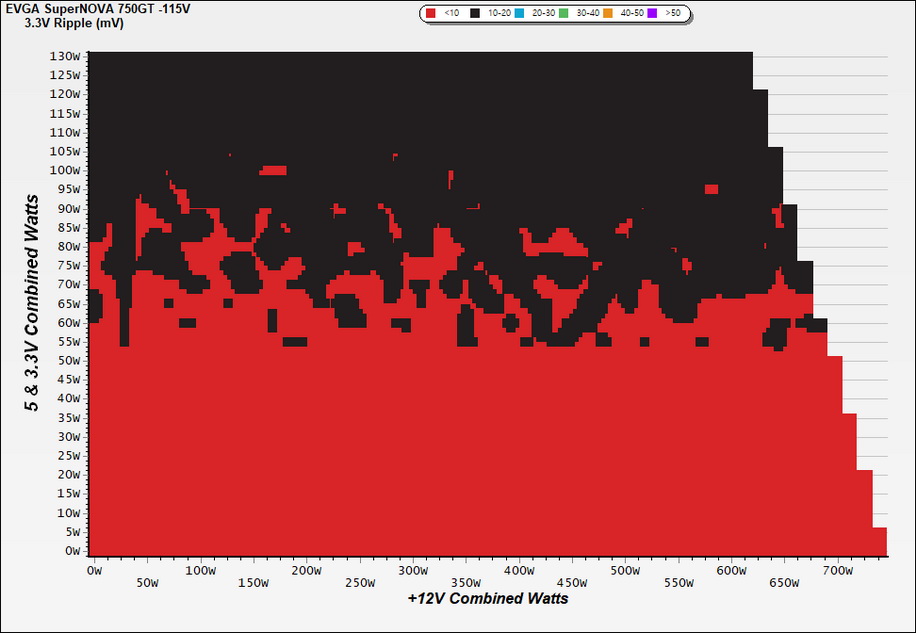
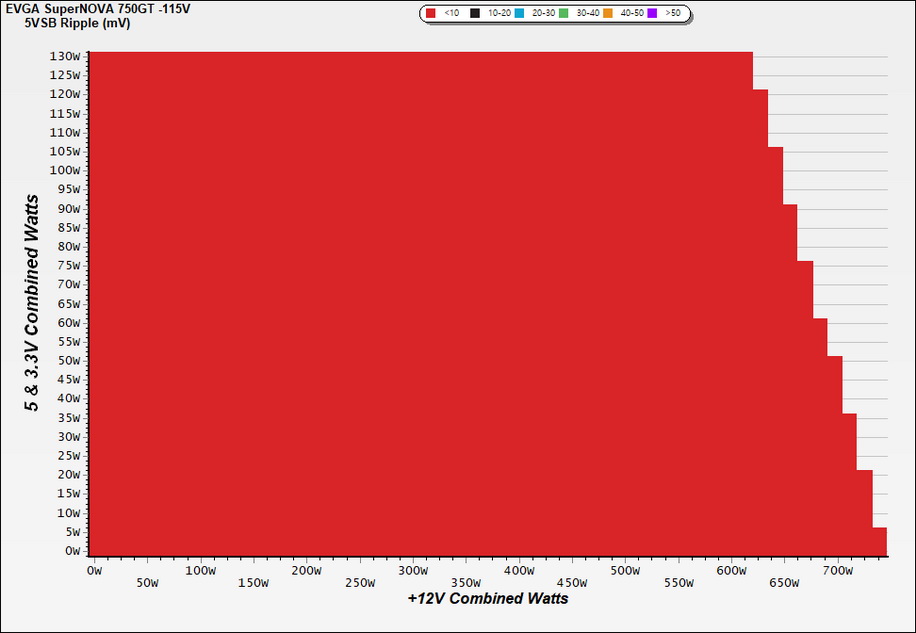
Infrared Images
We apply a half-load for 10 minutes with the PSU's top cover and cooling fan removed before taking photos with a modified Fluke Ti480 PRO camera able to deliver an IR resolution of 640x480 (307,200 pixels).
Get Tom's Hardware's best news and in-depth reviews, straight to your inbox.
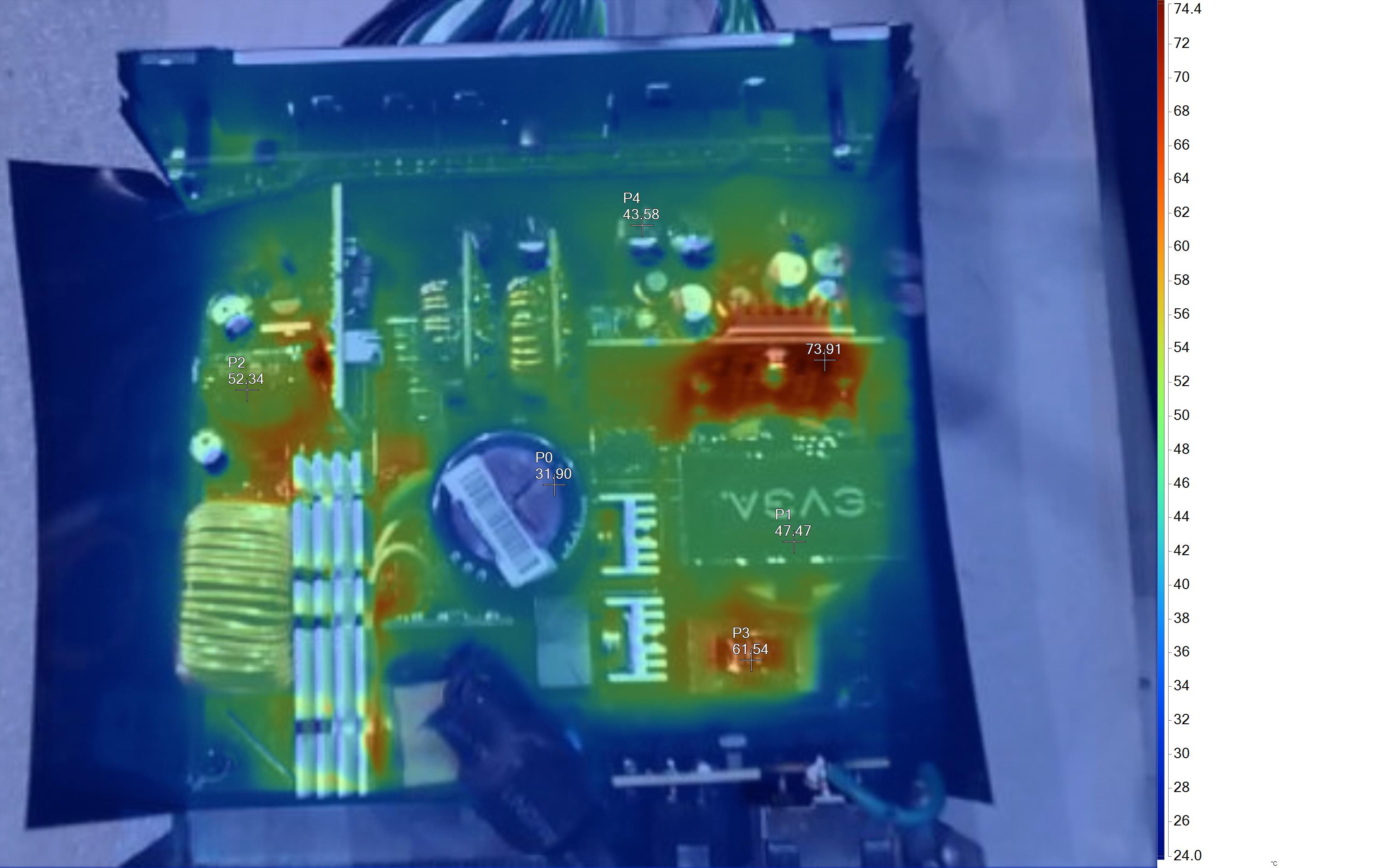
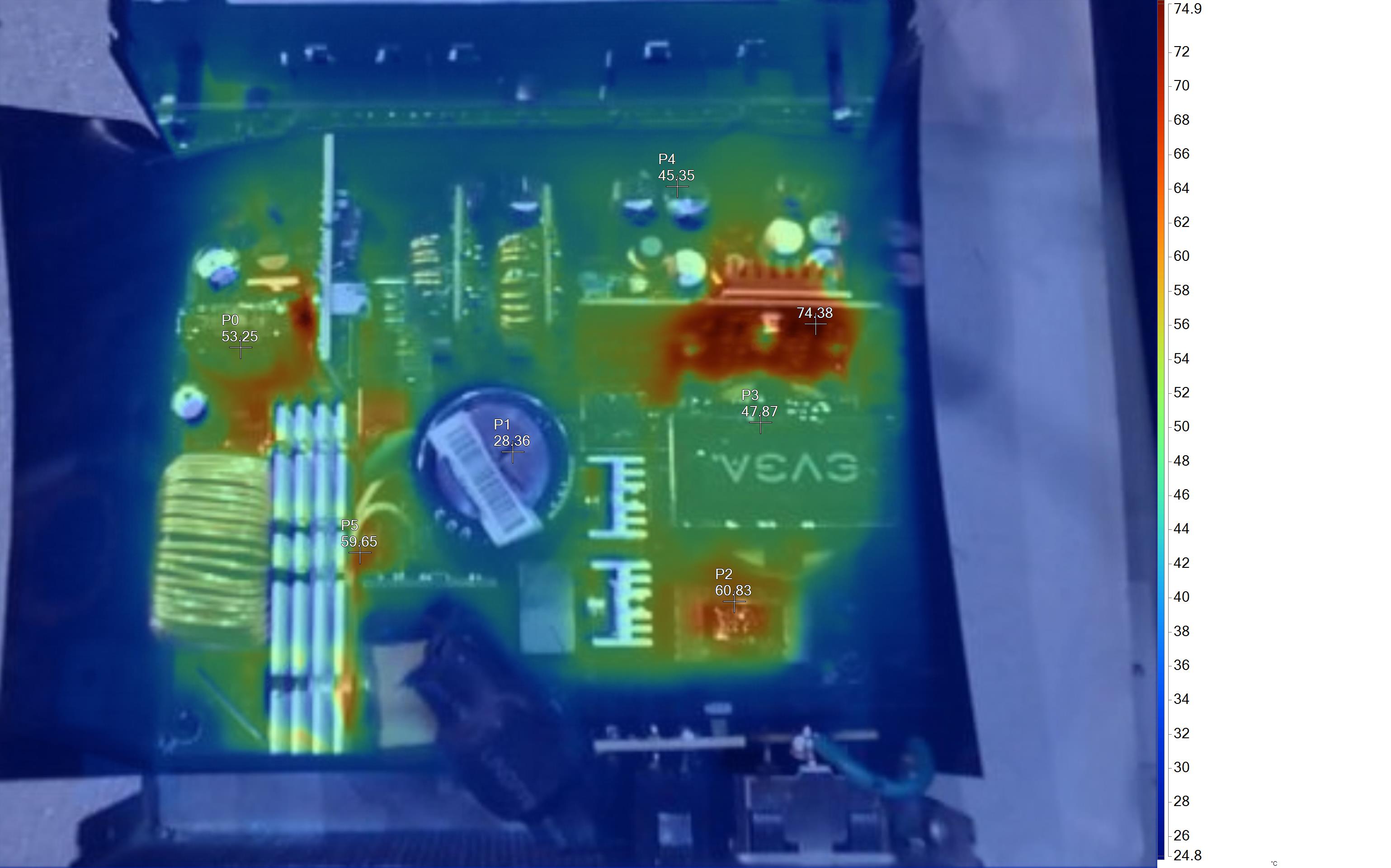
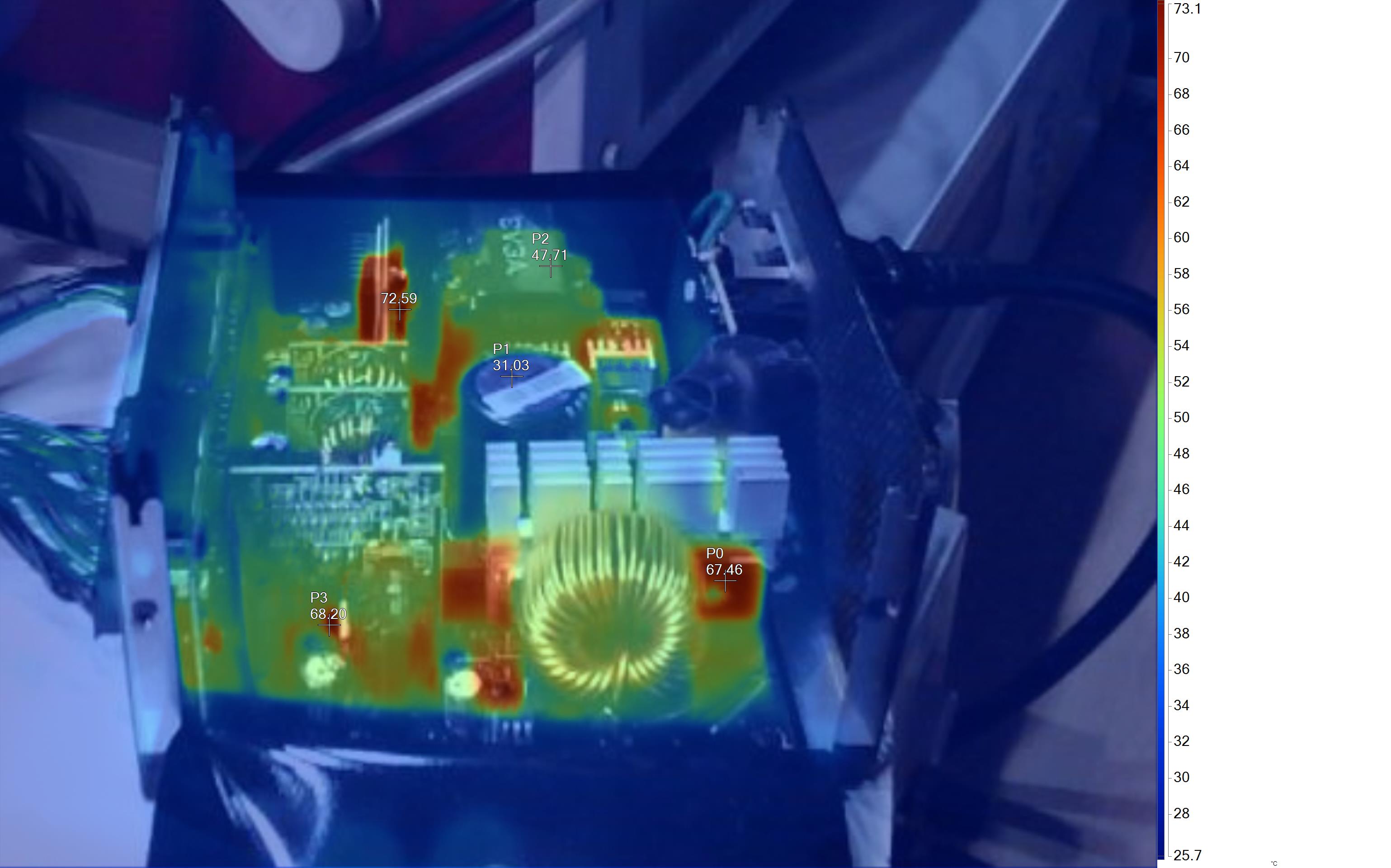
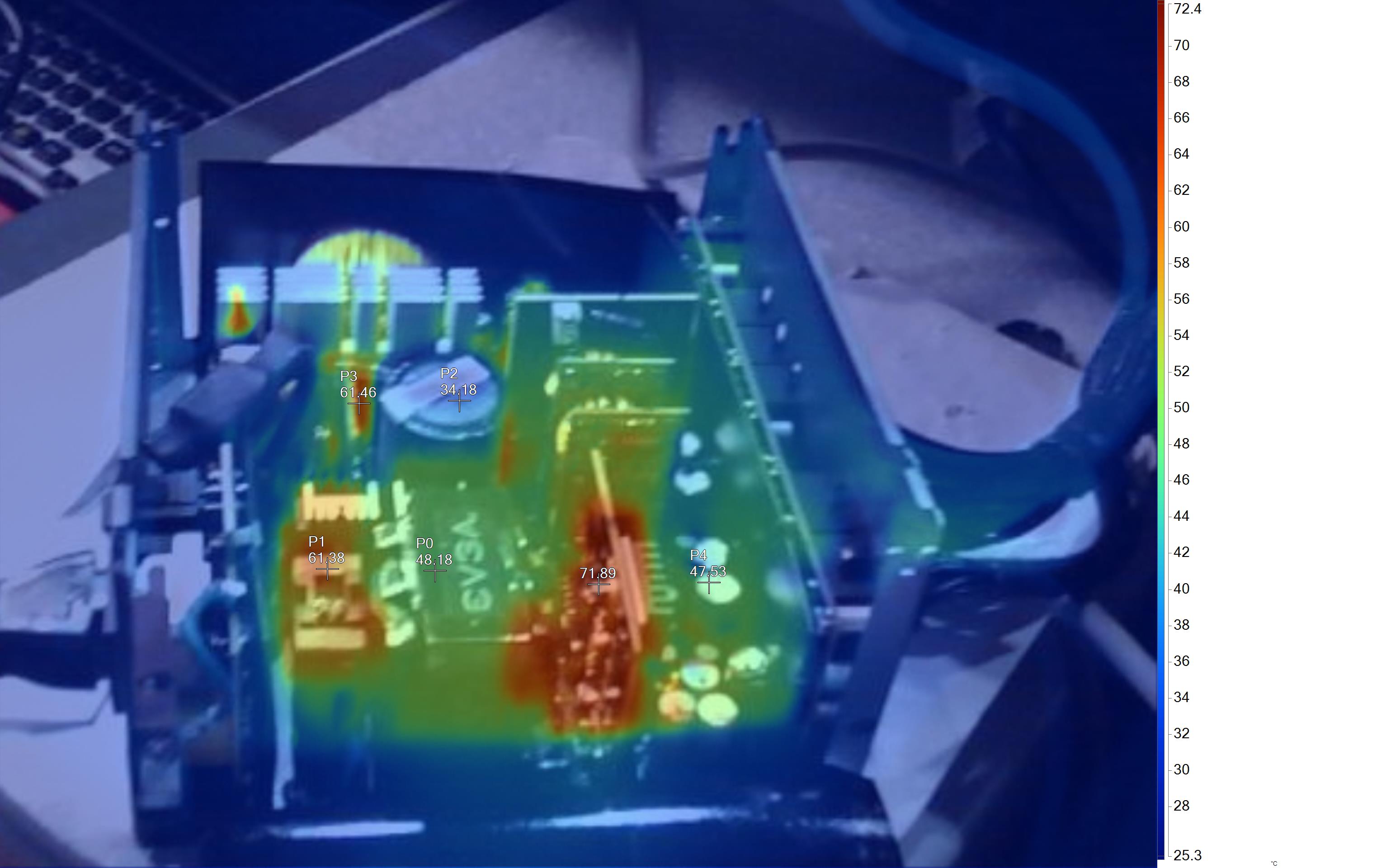
As expected, the hottest past is the daughter-board hosting the 12V FETs.
MORE: Best Power Supplies
MORE: How We Test Power Supplies
MORE: All Power Supply Content
Current page: Protection Features, DC Power Sequencing, Cross-Load Tests and Infrared Images
Prev Page Load Regulation, Hold-Up Time, Inrush & Leakage Current, Efficiency and Noise Next Page Transient Response Tests, Timing Tests, Ripple Measurements and EMC Pre-Compliance Testing
Aris Mpitziopoulos is a contributing editor at Tom's Hardware, covering PSUs.
-
hermitboy As far as the EVGA SuperNOVA product group goes, it looks like the G5 line is better than this GT line.Reply
Any idea how either of those compare to the SuperNOVA GA line?
Or why EVGA has so many different types of SuperNOVA?
I've seen the GA line in a number of bundles lately (with GPUs), but haven't found any reviews outside of the basic ones from shopping sites or comments on Reddit/other forums. So it is nice to see so many PSU reviews here that go into so much detail.
